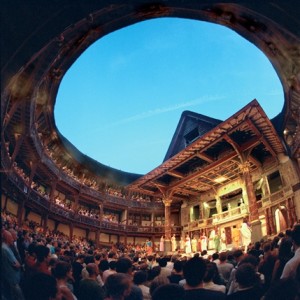
We finish up with the Invocation to Book III, and discuss Protestantism's (and particularly Milton's) view of Catholicism. Worshipping anything in the external world is worshipping an idol. Imagining that anything in the external world is magic, including the fruit of the tree of knowledge is idolatry. This means that knowledge of good and evil really does come out of a recognition of the fact that one has freely eaten of the tree: freedom and guilt are correlated. This also means that there's something you might call the converse of allegory going in in Paradise Lost. The fruit isn't allegorical; it's literal. Eating it forces you to recognize yourself as allegorizing your own guilt. You eat the fruit and feel rightly guilty, so that your own action is an allegory of your sin. I thought that I explained this fairly decently, and am sorry to say that once again a technical problem cut the class off half way through. No doubt I'll repeat myself next class.
view more
More Episodes
Advanced Shakespeare 19 Friday 3-27-20 Act I concluded
 2020-03-27
2020-03-27
 131
131
 2020-03-27
2020-03-27
 131
131
Advanced Shakespeare 16 Being Mark Antony
 2020-03-14
2020-03-14
 162
162
 2020-03-14
2020-03-14
 162
162
Advanced Shakespeare 11 2/25/20 Interiorizing time
 2020-02-25
2020-02-25
 165
165
 2020-02-25
2020-02-25
 165
165
Advanced Shakespeare 10 Class of 2/14/20
 2020-02-18
2020-02-18
 151
151
 2020-02-18
2020-02-18
 151
151
Advanced Shakespeare 9 2/11/20: Remorse and repentance
 2020-02-12
2020-02-12
 155
155
 2020-02-12
2020-02-12
 155
155
Advanced Shakespeare 2 1/17/20
 2020-01-19
2020-01-19
 214
214
 2020-01-19
2020-01-19
 214
214
Advanced Shakespeare Episode 1 1/14/20
 2020-01-15
2020-01-15
 289
289
 2020-01-15
2020-01-15
 289
289
Early Romantics XXVII 5-10-19 LONG Last class on Coleridge
 2019-05-11
2019-05-11
 255
255
 2019-05-11
2019-05-11
 255
255
012345678910111213141516171819
Create your
podcast in
minutes
- Full-featured podcast site
- Unlimited storage and bandwidth
- Comprehensive podcast stats
- Distribute to Apple Podcasts, Spotify, and more
- Make money with your podcast
It is Free
- Privacy Policy
- Cookie Policy
- Terms of Use
- Consent Preferences
- Copyright © 2015-2024 Podbean.com





